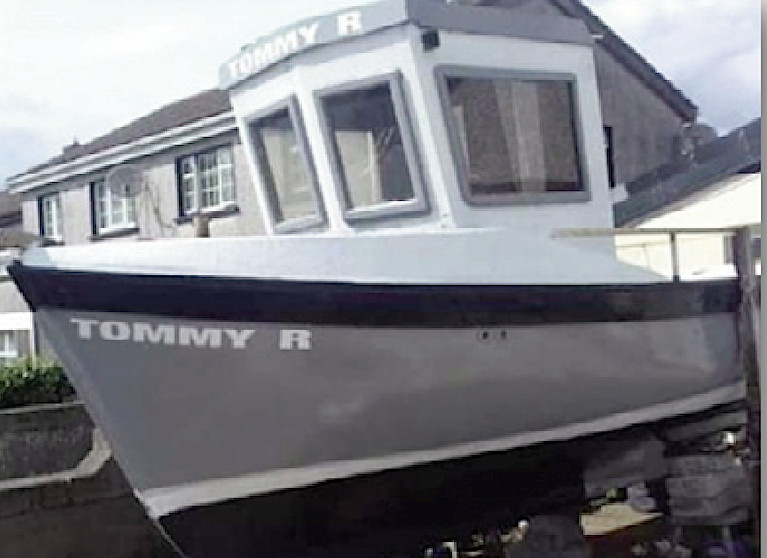An investigation into the death of the young west Cork fisherman Kodie Healy in Dunmanus Bay last year says he may have fallen overboard his boat.
The Marine Casualty Investigation Board (MCIB) report published today says Mr Healy had only bought the boat three to four weeks before the incident on October 9th, 2019.
The 23-year-old man was a trained and experienced commercial fisherman and was on a day off when he went fishing for mackerel and pollack in the 5.7-metre open deck GRP vessel Tommy R
He was not wearing a lifejacket or personal flotation device (PFD), and the report notes that he may not have known that there was a satellite personal locator beacon (PLB) onboard the vessel.
The hull was not found, but wreckage was picked up widely, and his body was located by divers north-west of Carbery island in a gulley or crevice in 11 metres of water on October 13th.
There had been an extensive search for Mr Healy, after he was reported overdue by his father, John Healy - from a well known west Cork fishing family - on the evening of October 9th last year.
An autopsy identified death by acute cardio-respiratory failure due to drowning.
The MCIB report concludes that “the most probable cause” of his death was that he fell overboard sometime after 1 pm when close to the northwest shore of Carbery Island.
“The ‘Tommy R’ steering would have been uncontrolled and the boat would have come into close proximity of the Carbery breaker or the seas northwest of Carbery island,” the report says.
The boat would then have been “overwhelmed, broken up and sunk by a breaking sea”.
Contributory factors identified by the MCIB include adverse weather, with a small craft warning and rough seas in Dunmanus Bay.; and the fact that Mr Healy was not wearing a PFD.
The report says he was fishing “on his own in very dangerous seas off Carbery breaker and Carbery island”, and the vessel was not suitable for those sea conditions on that day.
The qualified commercial fisherman who trained at the National Fisheries College, Castletownbere had left to fish in Dunmanus Bay at 8 am on that morning,
The Irish Coast Guard, RNLI, Naval Service, West Cork Underwater Search and Rescue dive team and Blackwater SAR Daunt and Cork Sub Aqua were among units involved in the extensive search.
Shortly before 10 pm that first night, boat wreckage was found at Drishane point on the Dunmanus peninsula.
The report says that the Tommy R was previously a fishing vessel named the FV Jamie Andrea, and was removed from the fishing vessel register by application in August 2017. As a recreational craft, it was exempt with compliance with the EU directive on fishing vessels of this size.
It says that “from the type and condition of the wreckage, it may be deduced that the boat’s sinking was rapid leaving little time for the casualty, if he was on board and not incapacitated, to send out a distress signal, call for help, grab a lifesaving device or prepare to abandon the boat”.
The report says Mr Healy used the boat for recreational fishing on several occasions prior to the incident.
The boat, built-in 1983, had declarations of compliance, with stability declared as satisfactory.
There was no record of a VHF licence, but the radio was reported to be working. However, there was no reported VHF communication from the vessel.
The report says Mr Healy intended to use a dive board method - a device with several fish lures attached which is trolled at the end of a line behind a boat moving slowly forward at around two to three knots.
In correspondence, Mr Healy’s father John included a number of omissions in the draft report.
Mr Healy said his son was a very experienced seaman, having fished from the age of seven and in waters from “Rockall to the English Channel” in later years.
“Personally, I believe that without more sightings of the boat on that day or, ideally, having the GPS tracker for that day, it is fair and reasonable to say at this time that only the sea holds the mystery of what happened,” Mr Healy wrote.































































